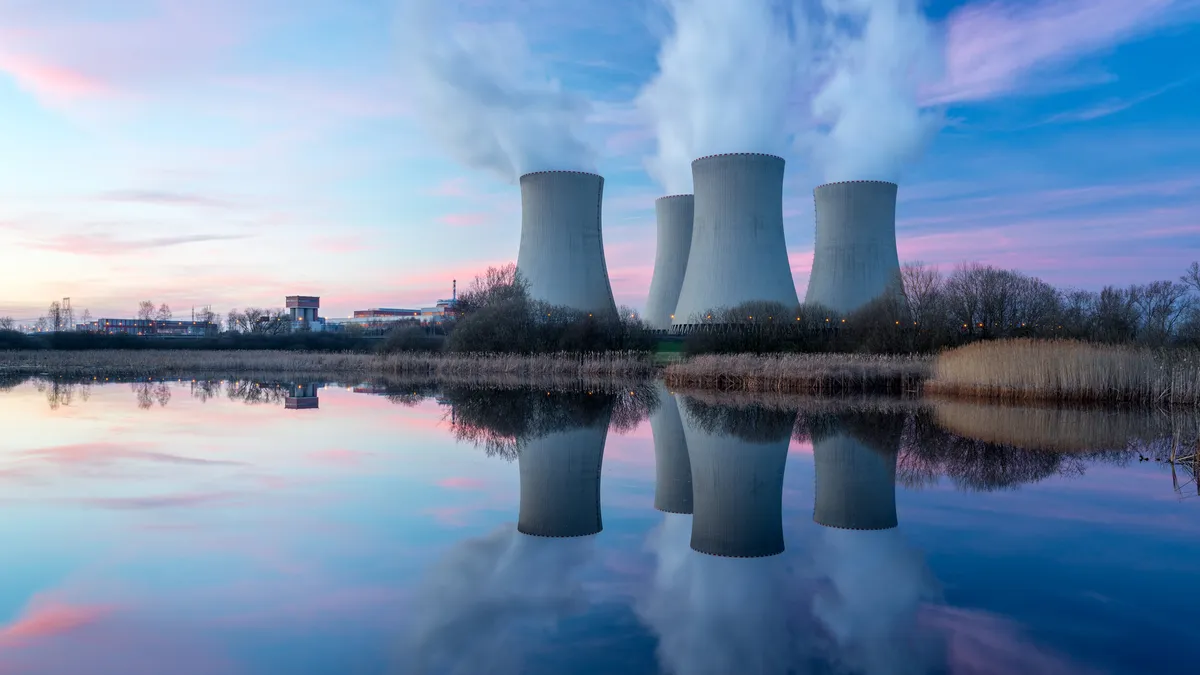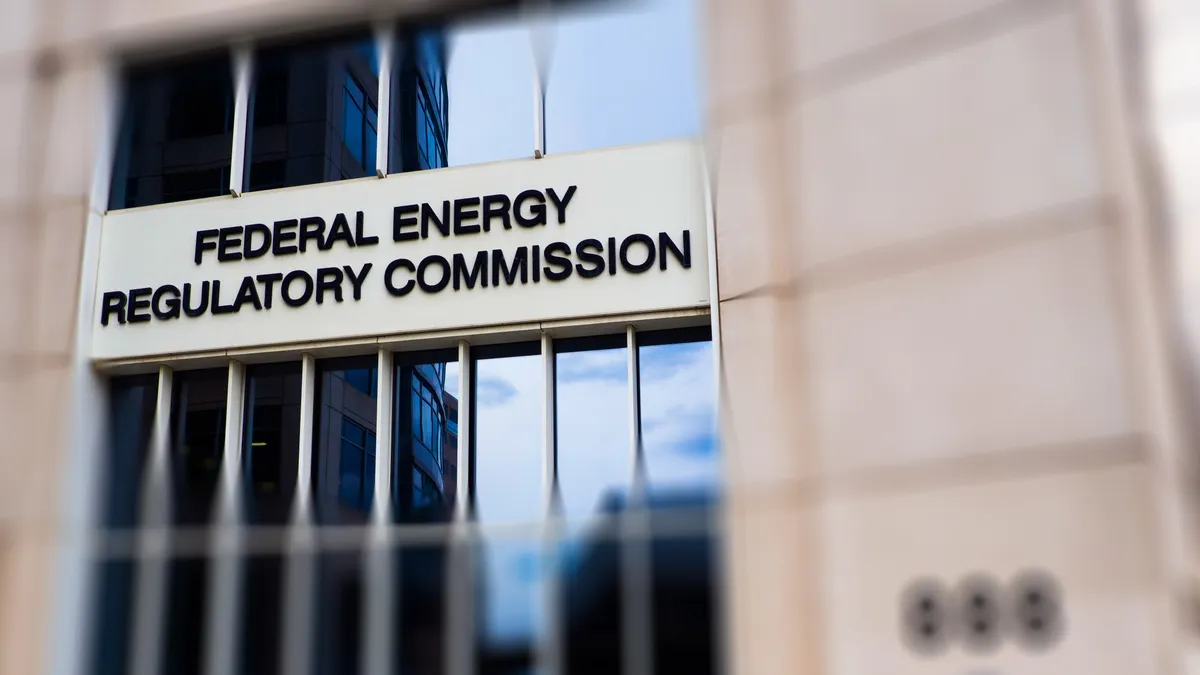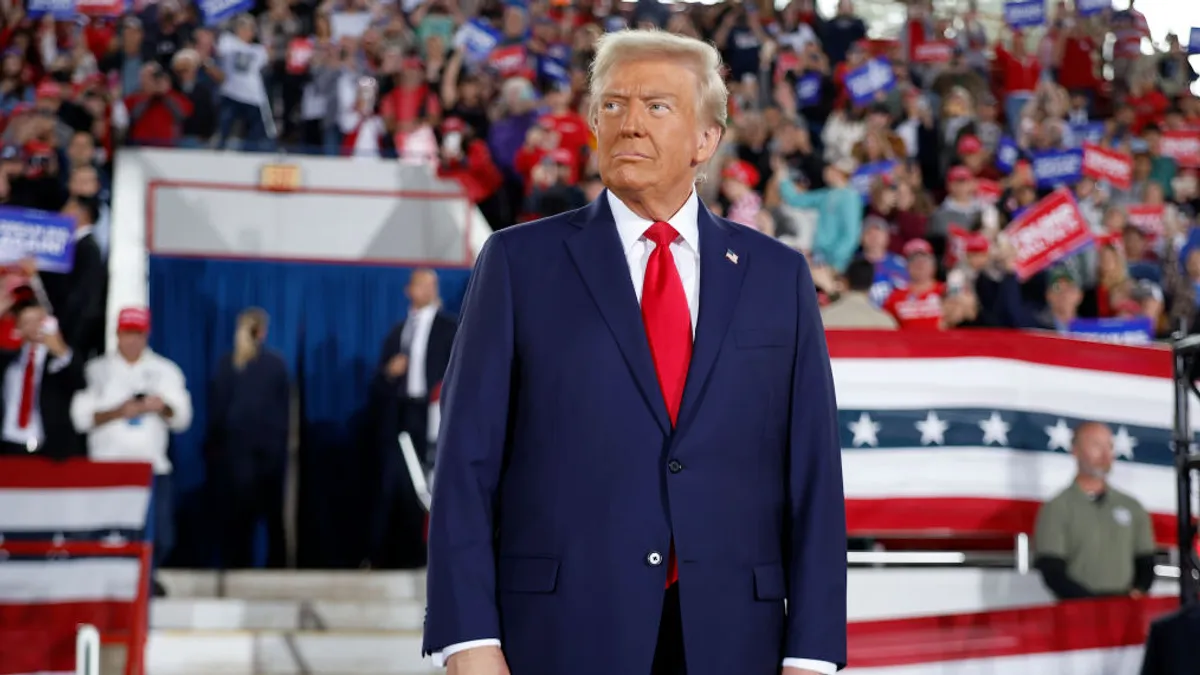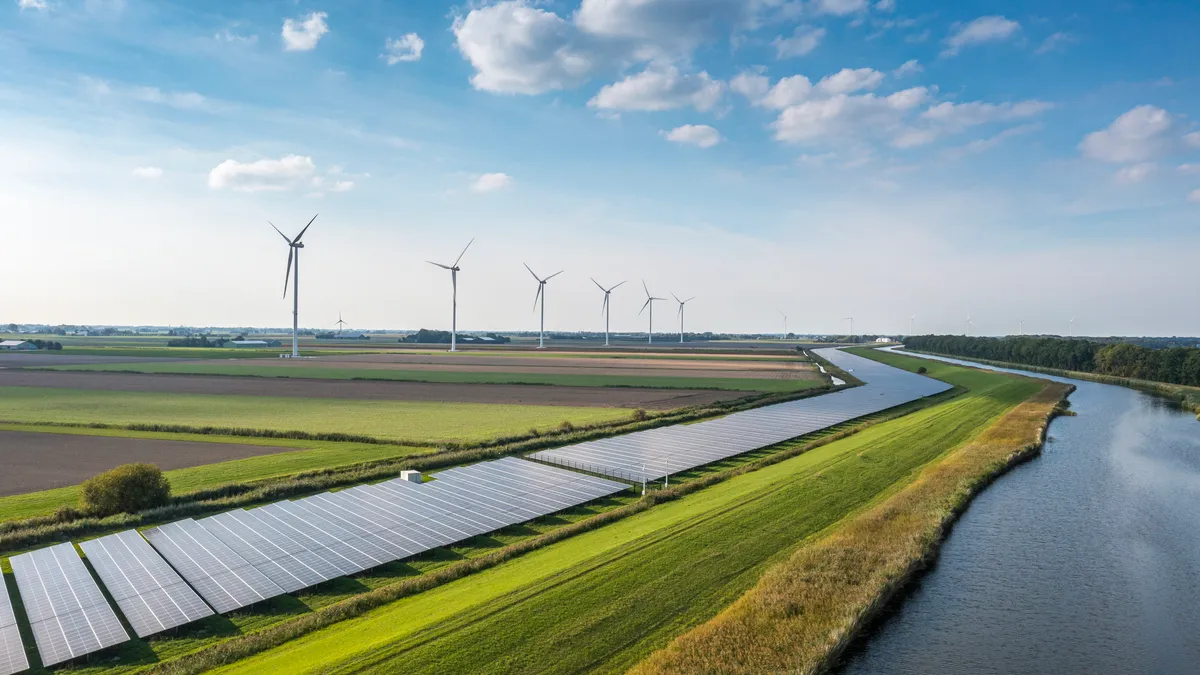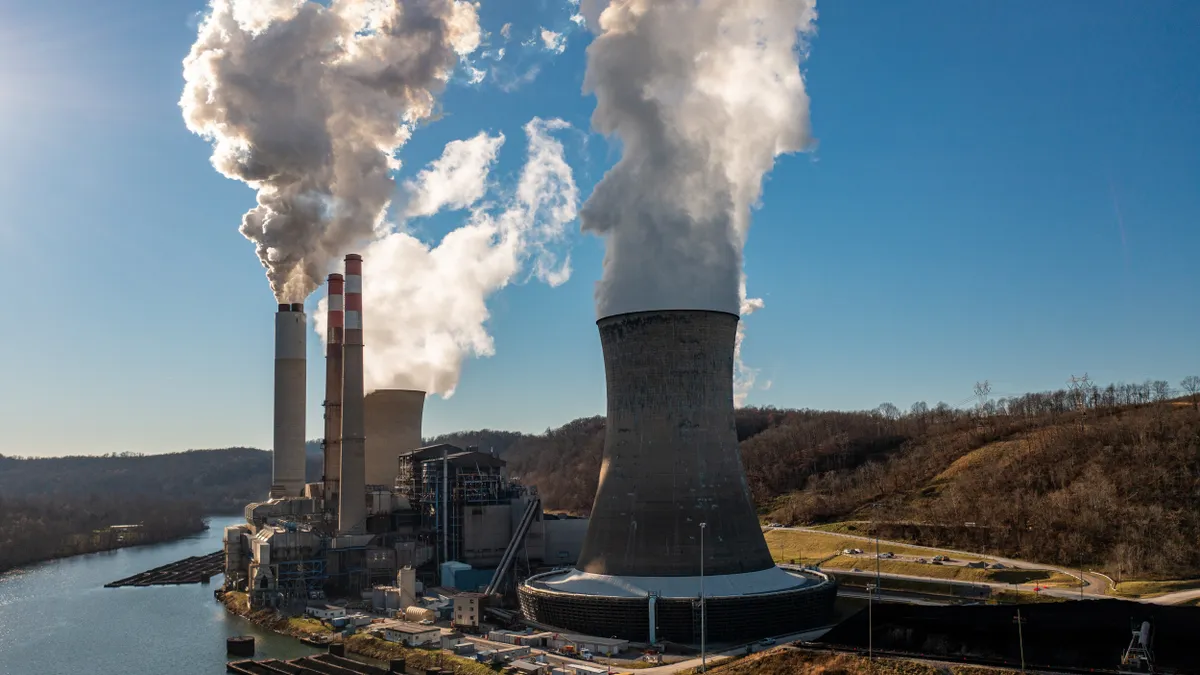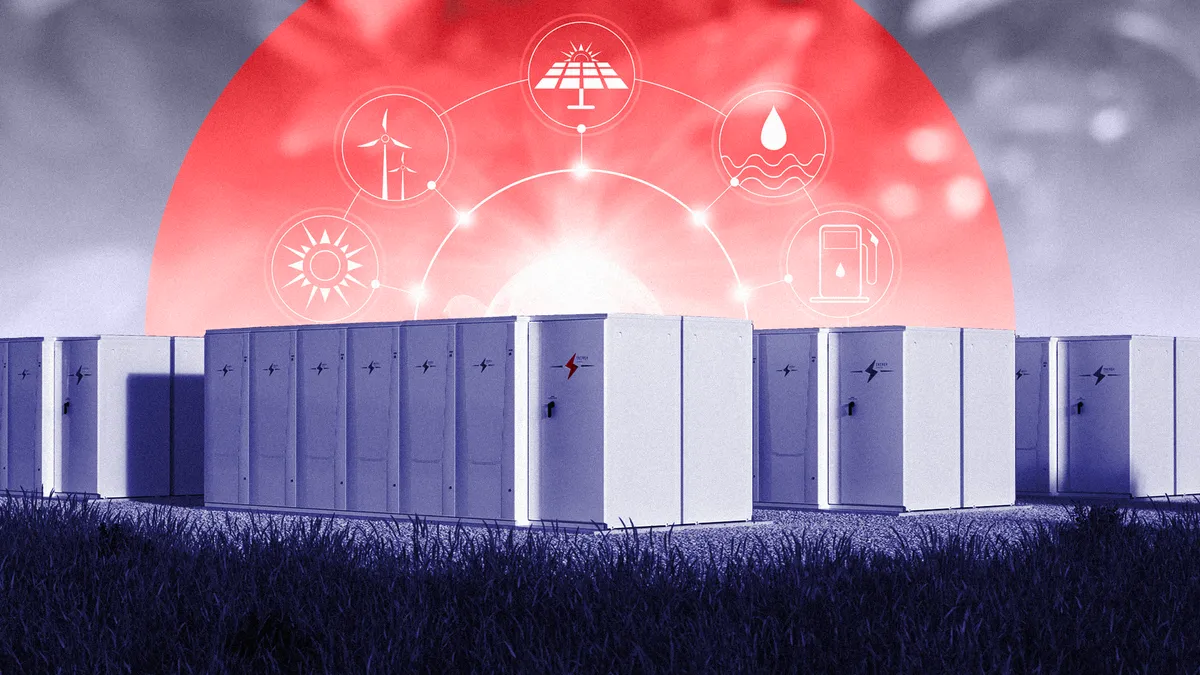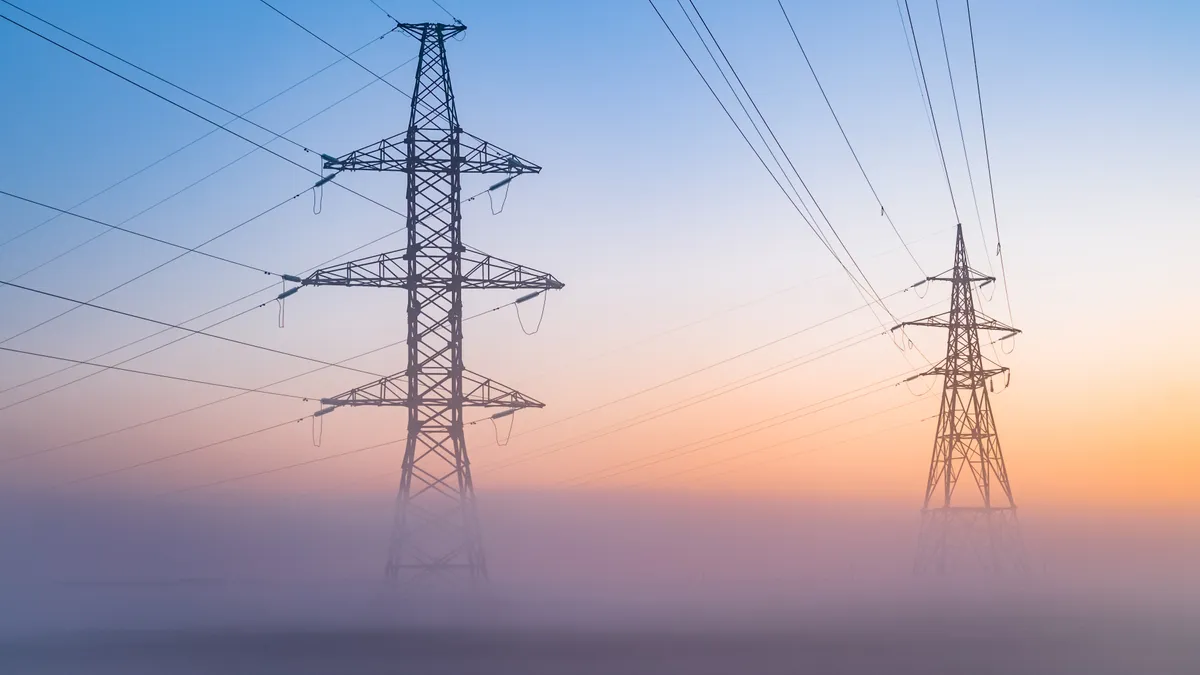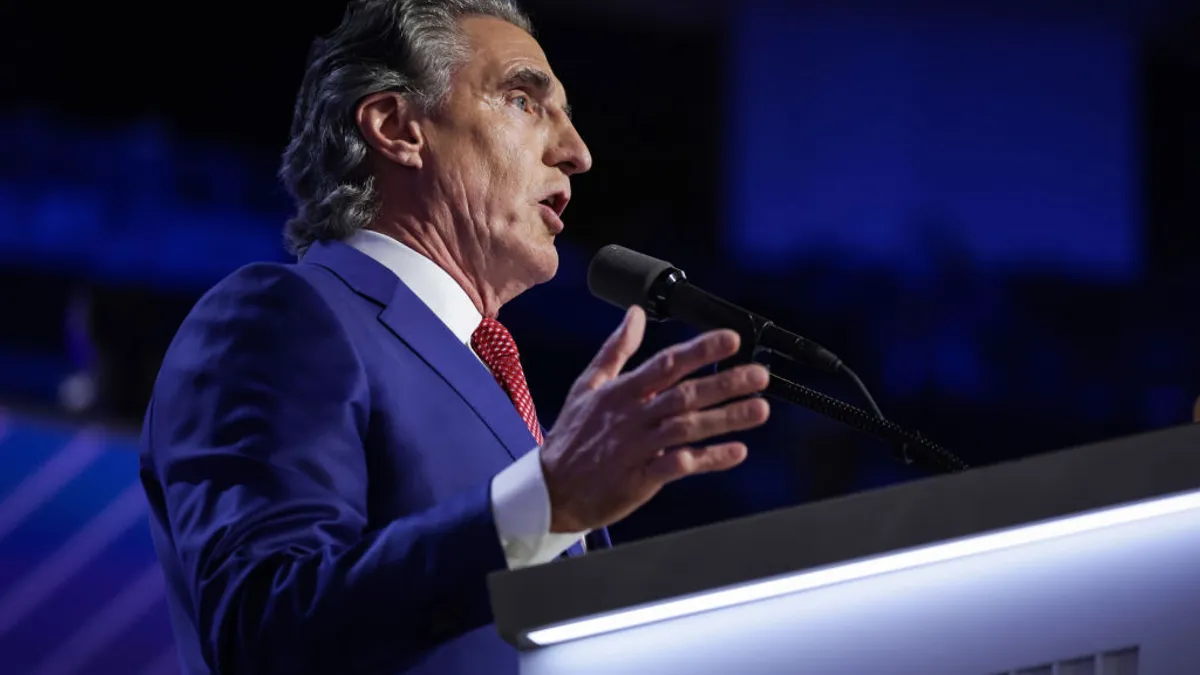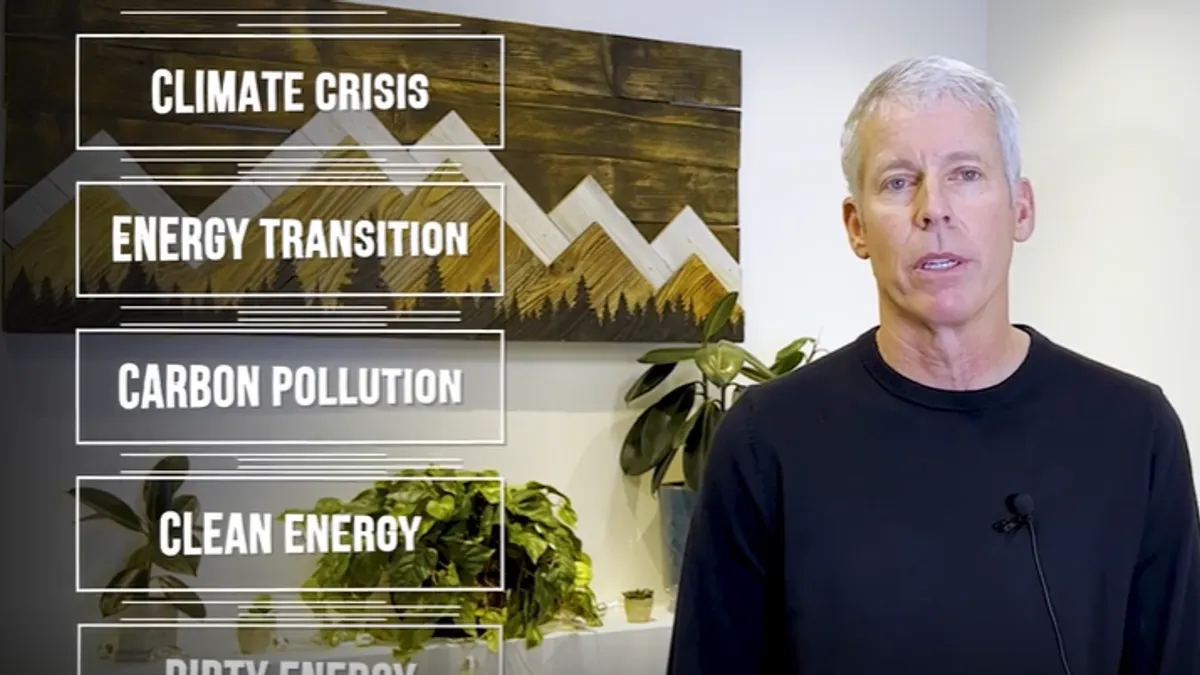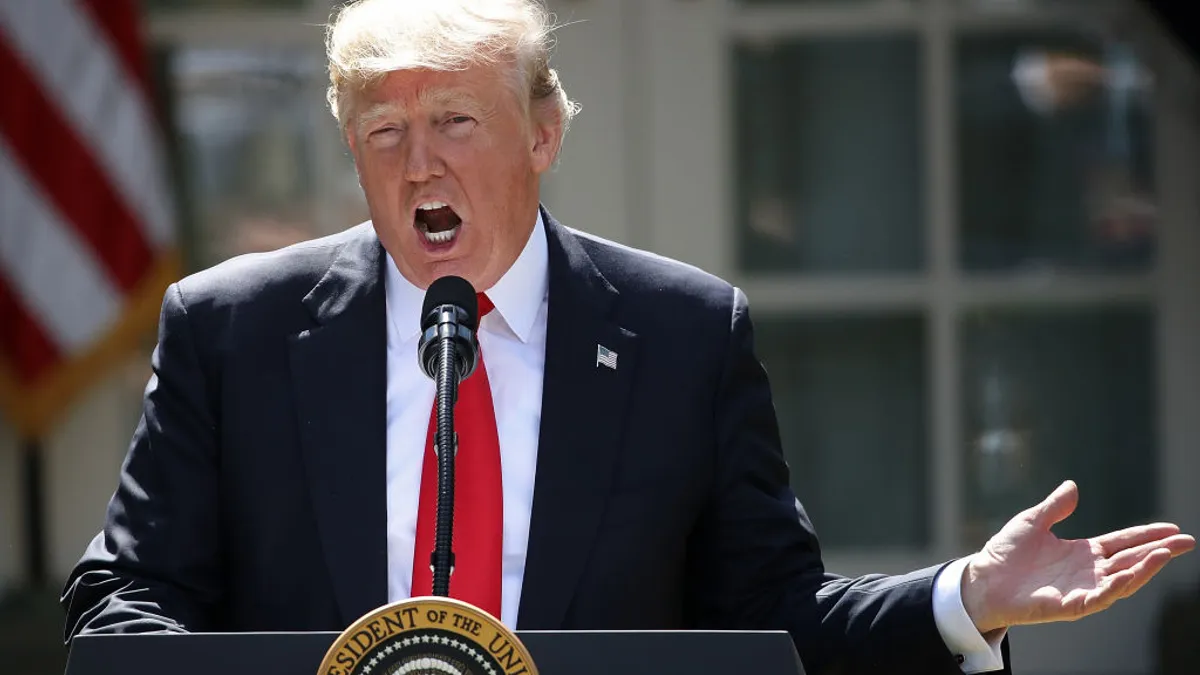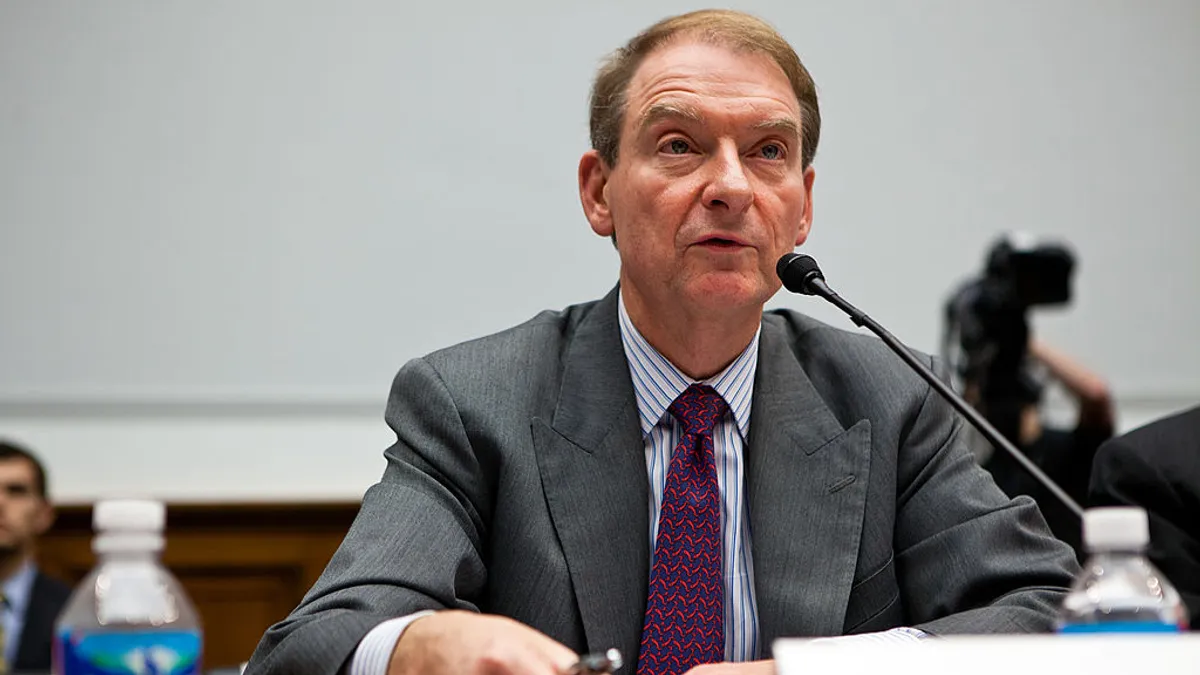Dive Brief:
- President-elect Donald Trump in August vowed to “approve new drilling, new pipelines, new refineries, new power plants [and] new reactors” on “day one” of his administration.
- But Trump has more recently sounded skeptical about federal backing for large-scale nuclear builds like Vogtle, which he said in an Oct. 25 interview with podcaster Joe Rogan “get too big, and too complex and too expensive,” raising questions about his second administration’s willingness to support the industry.
- The nuclear sector has mixed views on the incoming administration’s potential support, with some expressing optimism that Trump would build on pro-nuclear policies enacted during the Biden and first Trump administrations and others concerned about a pullback in federal funding for advanced nuclear development.
Dive Insight:
The second Trump administration is likely to “pursue an overall domestic energy agenda focused on energy production and dominance in the United States” but may not continue the Biden-Harris administration’s “massive appropriations” to the nuclear sector, American Nuclear Society Director of Public Policy John Starkey said.
At least one prominent Trump ally, environmental lawyer and former presidential candidate Robert F. Kennedy Jr., has an anti-nuclear track record. Kennedy, a Trump ally who is expected to have an official role in the incoming administration, fought for years to close New York’s Indian Point nuclear plant. More recently, he has voiced opposition to federal nuclear energy subsidies.
“We should have no subsidies … all the companies should internalize their costs in the way that they internalize their profits,” Kennedy told Tesla CEO and fellow Trump backer Elon Musk in an online discussion last year.
But the first Trump administration was broadly supportive of the U.S. nuclear industry. It provided billions in loan guarantees to facilitate construction of Plant Vogtle units 3 and 4; supported the failed Carbon Free Power Project at Idaho National Laboratory, a proposed 462-MW plant that would have used NuScale’s small modular reactor technology; and advanced the pro-nuclear Partnership for Transatlantic Energy Cooperation, the Trump presidential campaign said in 2023.
In 2019, Trump signed the Nuclear Energy Innovation and Modernization Act, or NEIMA, which paved the way for the technology-neutral Part 53 advanced reactor licensing pathway. The NRC is expected to finalize Part 53 regulations by 2027.
“We look forward to working with the new administration to advance policies that extend the lives of existing nuclear reactors, usher in a new era of advanced technologies and support a global marketplace for U.S. exports,” Nuclear Energy Institute President and CEO Maria Korsnick told Utility Dive.
The Nuclear Innovation Alliance, which advocates for next-generation nuclear technologies, “expect[s] advanced nuclear energy to continue to enjoy robust and bipartisan support,” NIA Executive Director Judi Greenwald said.
Investors in publicly traded nuclear technology companies also appeared to react positively to Trump’s reelection. Shares of NuScale Power jumped nearly 14% on Nov. 6 as its majority owner Fluor Corporation gained about 7%, while Oklo shares rose by 5.5%. NuScale and Oklo built on those gains through Friday morning trading, but Fluor dropped more than 10% in early trading following weaker-than-anticipated third-quarter earnings.
But the incoming administration’s likely focus on reducing federal discretionary spending — Musk called for at least $2 trillion in spending cuts last month after Trump in September floated his appointment to a new “government efficiency commission” — “is a concern for a lot of potential customers” for advanced nuclear, said Jessica Lovering, co-founder and executive director of the Good Energy Collective, a pro-nuclear advocacy group.
The first Trump administration’s enthusiastic support for oil and gas production foreshadows more of the same this time around, and the new administration’s fossil fuel emphasis could mean nuclear and other low-carbon energy sources get less attention and funding, she said.
“We’ve heard a lot of promises [about] an ‘all-of-the-above’ energy strategy,” but there is “a big divide between words and actions,” Lovering said.
In addition, Trump has vowed to repeal Inflation Reduction Act tax credits for electric vehicles, offshore wind and other cleantech sectors. But the production tax credit benefiting many existing nuclear generators could be more durable given its bipartisan origins, Constellation Energy CEO Joe Dominguez suggested Monday on the company’s third-quarter earnings call.
“Nuclear energy has strong and bipartisan support from federal and state policymakers and from the American people,” he said. “The origins of the production tax credit came from Republicans in the House and the Senate.”
Nevertheless, utilities are unlikely to invest in new large light-water reactor construction during the second Trump term without further federal policy support, Starkey said.
Congress has done some “early work” on a policy framework to lessen construction cost risk and broaden tax credit applicability, “but we are still a ways away from that becoming a reality,” he said. Developers and customers of smaller advanced reactors are more likely to benefit from a continuation of pro-nuclear initiatives launched over the past eight years — such as the Advanced Reactor Demonstration Program, which supports commercial demonstration reactors being developed by TerraPower and X-energy, he added.
”We don’t need a big overhaul,” Starkey said. “We need more precise tweaks and not a full-scale gutting of any policy that’s out there already.


